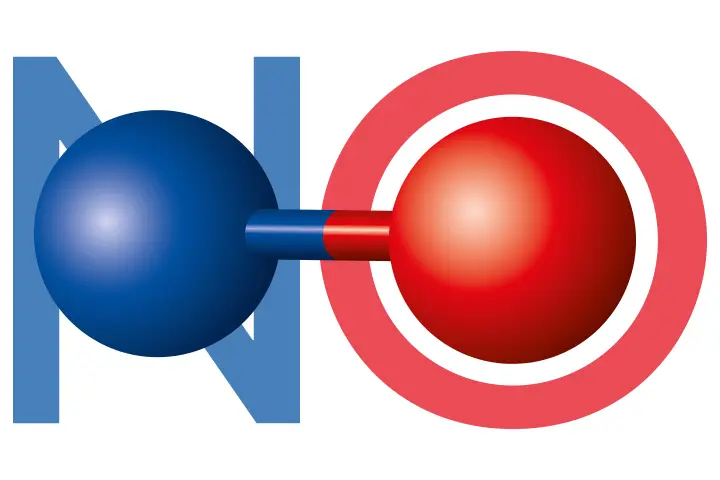The Role of Nitric Oxide in the Human Body and its Amazing Potential
Nitric oxide (NO) is a gas that is produced naturally by the human body. It is a highly reactive molecule that plays a crucial role in many physiological functions. Nitric oxide was first discovered in the 1980s, and since then, extensive research has been conducted to understand its biological significance. In this article, we will explore the role of nitric oxide in the human body and its amazing potential. We’ll also discuss natural ways to increase nitric oxide.
What is Nitric Oxide?
Nitric oxide is a colorless gas that is produced naturally by the body. It is synthesized from the amino acid L-arginine by the enzyme nitric oxide synthase (NOS). Nitric oxide is a highly reactive molecule that acts as a signaling molecule in the body. It is involved in many physiological processes, including vasodilation, neurotransmission, immune response, and apoptosis.
Vasodilation
Nitric oxide plays a crucial role in vasodilation, the process by which blood vessels widen, allowing increased blood flow to tissues and organs. Nitric oxide is produced by the endothelial cells lining the blood vessels in response to various stimuli, including acetylcholine, bradykinin, and shear stress. Nitric oxide diffuses into the smooth muscle cells in the blood vessel walls, where it stimulates the production of cyclic guanosine monophosphate (cGMP). cGMP causes relaxation of the smooth muscle cells, resulting in vasodilation and increased blood flow. This process is important in regulating blood pressure, oxygen delivery, and nutrient transport.
Neurotransmission
Nitric oxide is also involved in neurotransmission, the process by which neurons communicate with each other. Nitric oxide acts as a neurotransmitter in the brain, where it modulates the release of other neurotransmitters, including dopamine, serotonin, and glutamate. Nitric oxide is also involved in long-term potentiation, a process that is important in learning and memory.
Immune Response
Nitric oxide is produced by immune cells, including macrophages and neutrophils, in response to infections and inflammation. Nitric oxide acts as a potent antimicrobial agent, killing bacteria, viruses, and fungi. It also regulates the immune response, inhibiting the proliferation of T cells and suppressing the production of cytokines.
Apoptosis
Nitric oxide is involved in apoptosis, the process by which cells die. Nitric oxide can induce apoptosis in cancer cells, making it a potential therapeutic agent in cancer treatment.
COVID-19 Prevention?
In addition to its basic role in our human immune response, it appears that Nitric Oxide may inhibit coronavirus in two additional ways; by preventing the virus from adhering to cells and interfering with the viral replication process. Though this is just a hypothesis at this point, it’s worth keeping an eye on this promising preventative. (Reference: https://www.medpagetoday.com/infectiousdisease/covid19/85770)
Potential Applications of Nitric Oxide
Given the diverse roles of nitric oxide in the human body, it is not surprising that it has potential applications in many fields. Here are some of the potential applications of nitric oxide:
Cardiovascular Health
Nitric oxide is important in maintaining cardiovascular health. Low levels of nitric oxide have been linked to hypertension, atherosclerosis, and other cardiovascular diseases. Nitric oxide supplementation has been shown to improve endothelial function, reduce blood pressure, and improve exercise performance.
Erectile Dysfunction
Nitric oxide plays a crucial role in erectile function. The release of nitric oxide in the penis leads to vasodilation and increased blood flow, which is necessary for achieving and maintaining an erection. Erectile dysfunction is often caused by a decrease in nitric oxide production, and nitric oxide supplementation has been shown to improve erectile function in men with erectile dysfunction.
Wound Healing
Nitric oxide is involved in wound healing, and nitric oxide donors have been shown to accelerate the healing of chronic wounds. Nitric oxide promotes angiogenesis, the formation of new blood vessels, and stimulates the production of growth factors that are important in wound healing.
Cancer Treatment
Nitric oxide has potential applications in cancer treatment. Nitric oxide can induce apoptosis in cancer cells, and nitric oxide donors have been shown to inhibit tumor growth in animal models. Nitric oxide has also been shown to enhance the effectiveness of chemotherapy and radiation therapy.
Respiratory Health
Nitric oxide is important in respiratory health. It is produced by the airway epithelial cells and plays a crucial role in regulating airway tone and bronchodilation. Nitric oxide has been shown to be effective in the treatment of pulmonary hypertension, asthma, and chronic obstructive pulmonary disease (COPD).
Sports Performance
Nitric oxide has potential applications in sports performance. Nitric oxide supplementation has been shown to improve exercise performance, increase endurance, and reduce fatigue. Nitric oxide enhances blood flow and oxygen delivery to muscles, which can improve athletic performance.
Natural Methods to Increase Nitric Oxide in the Body
Diet
Diet plays an important role in the production of nitric oxide in the body. Foods that are high in nitrates, such as spinach, beets, and arugula, can increase the production of nitric oxide. These foods contain high levels of dietary nitrates that are converted to nitric oxide in the body. Foods that are rich in antioxidants, such as blueberries, pomegranates, and dark chocolate, can also increase the production of nitric oxide by reducing oxidative stress in the body.
Exercise
Exercise is another natural method to increase nitric oxide production in the body. Exercise stimulates the production of nitric oxide synthase, an enzyme that produces nitric oxide. High-intensity interval training (HIIT) has been shown to be particularly effective in increasing nitric oxide production in the body.
Sunlight
Sunlight exposure can also increase the production of nitric oxide in the body. Ultraviolet light from the sun stimulates the production of nitric oxide in the skin. This is why sun exposure has been linked to a reduced risk of cardiovascular disease.
Tuning Forks
Alternate healing modalities such as tuning forks have been used to increase nitric oxide production in the body. Tuning forks are metal instruments that produce sound vibrations at specific frequencies. When placed on the body, tuning forks can stimulate the production of nitric oxide. This is because nitric oxide is produced in response to mechanical and vibrational stimulation. (To book an amazing tuning fork healing session, visit https://rowan-wellness.com/services-scheduling/ or request more information.)
Magnetic Fields
Magnetic fields have also been used to increase nitric oxide production in the body. Electromagnetic fields can stimulate the production of nitric oxide synthase, the enzyme responsible for producing nitric oxide. This has potential applications in the treatment of various health problems, including cardiovascular disease, erectile dysfunction, and wound healing.
Besides tuning forks and magnetic fields, other alternative healing modalities that have been shown to increase nitric oxide production in the body include acupuncture, massage therapy, and meditation. Acupuncture has been shown to increase nitric oxide levels in the blood and improve blood flow. Massage therapy has also been shown to increase nitric oxide production in the body, which can improve blood flow and reduce inflammation. Meditation has been shown to increase nitric oxide production in the brain, which can improve cognitive function and reduce anxiety. While more research is needed to fully understand the potential of these alternative healing modalities in increasing nitric oxide production in the body, they offer promising potential in improving overall health and wellbeing.
Nitric oxide is a highly reactive molecule that plays a crucial role in many physiological functions. It is involved in vasodilation, neurotransmission, immune response, and apoptosis. Nitric oxide has potential applications in many fields, including cardiovascular health, erectile dysfunction, wound healing, cancer treatment, respiratory health, and sports performance. Nitric oxide supplementation has been shown to be safe and effective in improving health outcomes in many of these fields. Further research is needed to fully understand the potential of nitric oxide in improving human health.
Schedule a Session With Me
If you’d like to go deeper in a supportive, healing environment, please visit my scheduling page.


